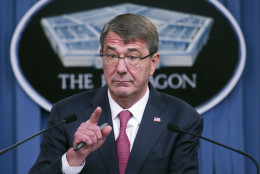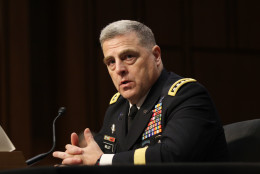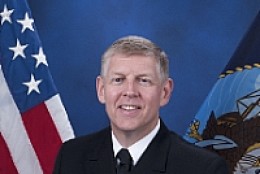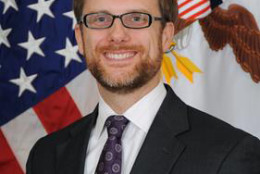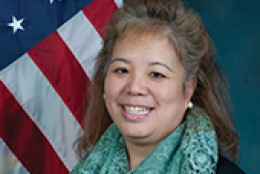Defense
-
President Barack Obama in February presented his eighth and final budget, which includes a list of programs he'd like to see reduced or ended. How and why do programs end up on the chopping block, and what might save them from the cut?
March 11, 2016 -
While the government and industry are spending money on programs and firewalls, some experts say the real problem is in training the average user.
March 11, 2016 -
The Chief of Staff of the Army Gen. Mark Milley says he's pushing for a more mobile force of the future, both in terms of technology and acquisition.
March 11, 2016 -
The Army says it's enthusiastically embracing reforms that give its uniformed officials more responsibility, and asks Congress to give them more authority.
March 11, 2016 -
Lt. Gen. John Murray, deputy chief of staff for the U.S. Army, said the service is carefully weighing the recommendations made by the National Commission on the Future of the Army.
March 10, 2016 -
The Project on Government Oversight is accusing the DoD Inspector General of “systemic weaknesses and apparent cultural aversion to whistleblowers.” DoD IG said that is just not the case.
March 10, 2016 -
Later this month, the Navy is launching the USS Secure effort to ensure disparate networks and systems on board ships are protected from hacks or computer viruses. Adm. Lorin Selby, commander of the Naval Surface Warfare Center, fills in executive editor Jason Miller on Federal Drive with Tom Temin.
March 10, 2016 -
NSA is setting up a rapid acquisition office to help engage industry and help the industrial base.
March 09, 2016 -
This week’s show features two guests on two topics. We begin with Lt. Gen. Darryl Roberson, the commander of the Air Force’s Air Education and Training Command. We invited him on the program to talk about…
March 09, 2016 -
Sean McAfee, the deputy director of the National Cybersecurity Assessment and Technical Services, will lead the cyber operations part of the Homeland Security Department’s new Silicon Valley office, where he will work with companies to find innovations that the government can test and scale across all agencies as soon as possible.
March 09, 2016 -
The 2017 Pentagon budget request looks a lot like the 2016 one, maybe a little more so. The well-known and costly platforms are all in there, from the F-35 to modernizing the nuclear arsenal. Law professor Charles Tiefer shares his thoughts on Federal Drive with Tom Temin about some of the big drivers of waste.
March 08, 2016 -
DoD says BRAC would bring big savings in a time when it's facing big budget shortfalls if sequestration returns.
March 07, 2016 -
Marie Mak, director of acquisition and sourcing issues at the Government Accountability Office, appears on Pentagon Solutions.
March 07, 2016 -
China, Russia and Iran are all working on so-called anti-access and area-denial capabilities and missile systems aimed at neutralizing U.S. carriers. That's according to a new study by the Center for a New American Security. For details, Federal Drive with Tom Temin spoke to principal author Kelley Sayler.
March 07, 2016 -
Local venture capitalist Jonathan Aberman has been working with The 2030 Group, an organization made up of Washington Metropolitan area business leaders, to quantify the level of corporate and startup innovation here in the D.C. area. He shares the details on Federal Drive with Tom Temin.
March 07, 2016


